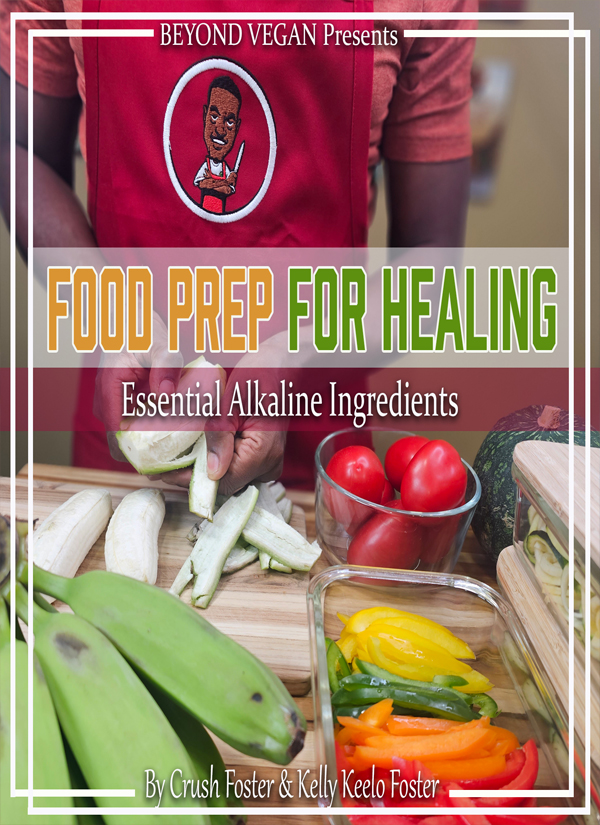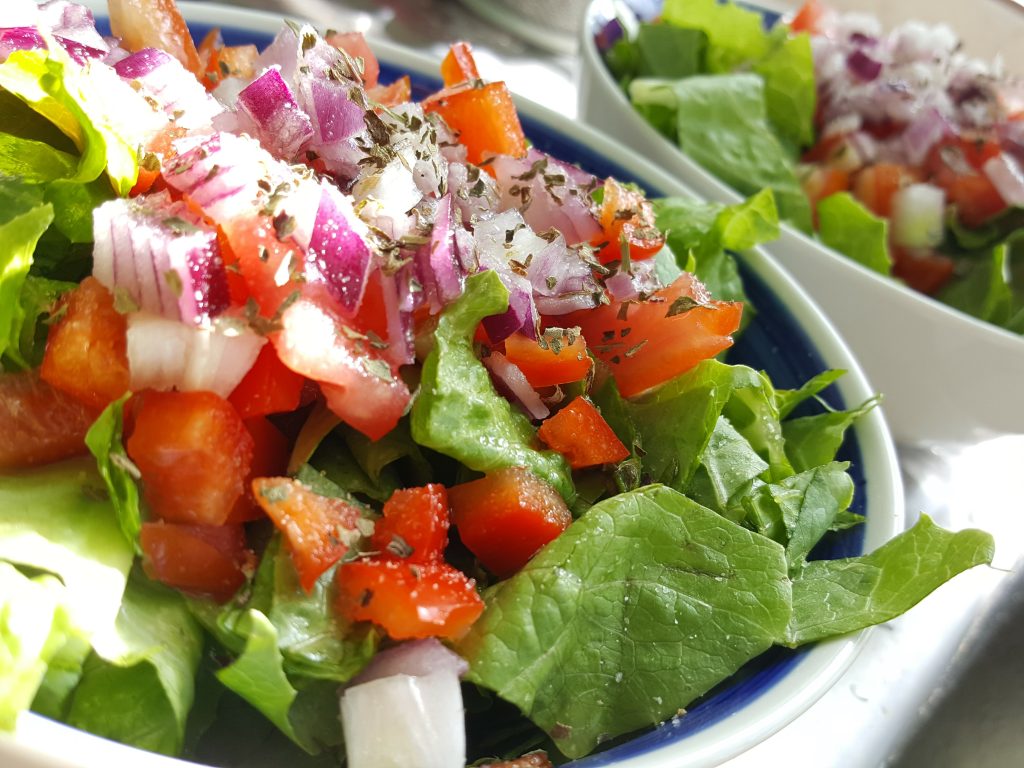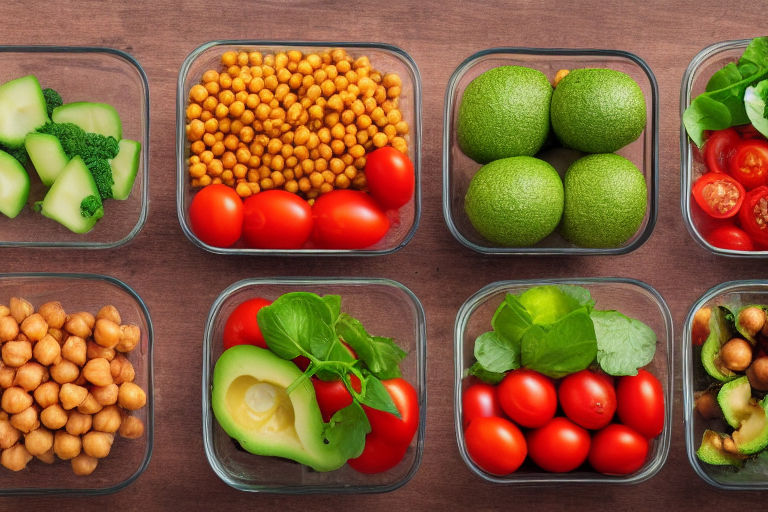Your cart is currently empty!
Science Behind Alkaline Food Prep for Digestive Healing
I. Introduction
- Explanation of what alkaline food prep is
- Importance of digestive health
- Brief overview of the benefits of alkaline food prep for healing
II. The Science behind Alkaline Food Prep
- Explanation of pH levels and how they affect digestive health
- Discussion of the acid-alkaline balance in the body
- Explanation of how alkaline food prep can help restore balance and promote healing
III. Foods to Include in Alkaline Food Prep
- List of alkaline foods and their benefits for digestive health
- Tips for incorporating these foods into meals and snacks
- Explanation of why these foods are beneficial for healing
IV. Recipes for Alkaline Food Prep
- Sample recipes for breakfast, lunch, dinner, and snacks
- Explanation of how each recipe promotes digestive healing
- Tips for adjusting recipes to meet individual dietary needs
V. Other Strategies for Promoting Digestive Health
- Discussion of other lifestyle factors that can impact digestive health (stress, exercise, etc.)
- Tips for incorporating these strategies into a holistic approach to healing
VI. Conclusion
- Recap of the benefits of alkaline food prep for healing
- Encouragement to try these strategies for improving digestive health
- Reminder to consult a healthcare professional before making any significant dietary changes
Do you suffer from digestive issues? Are you tired of relying on medication to alleviate your symptoms? Look no further than alkaline food prep. We will explore the science behind alkaline food prep for digestive healing. This preparation method and all-natural list of alkaline ingredients has been shown to aid digestion and promote healing. In this blog post, we’ll explore the science behind alkaline food prep and provide techniques for incorporating these foods into your diet.
What is Alkaline Food Prep?
Alkaline Food Prep is a nutritional approach that focuses on consuming foods with high alkaline levels to promote healing and balance in the body. Alkaline food choices include leafy greens, nuts, seeds, and low-sugar fruits like berries. By eating these types of foods regularly, you can help reduce acidity levels in your body and prevent digestive issues such as acid reflux or heartburn.

Incorporating more alkaline foods in your diet can potentially reduce the risk of cancer development and bring several other health benefits.
Studies have shown that incorporating more alkaline foods into your diet can also bring several benefits beyond digestive health. These benefits may include improved bone health, increased energy levels, reduced inflammation throughout the body, and potentially even reducing the risk of cancer development. Starting your day off with an alkaline-rich breakfast like a smoothie bowl packed with leafy greens is an easy way to get started on this healthy eating journey.
Understanding pH Levels
The pH scale refers to the measurement of acidity and alkalinity in a substance, with 7.0 being neutral. In terms of digestion, maintaining a slightly acidic environment is necessary for proper breakdown of food and absorption of nutrients. However, an overly acidic diet can negatively impact gut health by disrupting the balance of beneficial bacteria.
The body has natural mechanisms to regulate pH levels through processes such as respiration and excretion via urine or sweat. Additionally, consuming alkaline foods can help maintain a more balanced pH level within the body and potentially offer benefits such as reducing inflammation.
Impact of an overly acidic diet on gut health:
- Increased risk for digestive issues such as acid reflux
- Disruption of beneficial bacteria leading to imbalance in gut microbiome
- Potential link between chronic acidosis (prolonged metabolic acidity) and cancer
Examples of alkaline foods:
- Leafy greens (watercress, dandelion)
- Citrus fruits (key lime)
- Nuts (walnuts)
- Vegetables (zucchini)
Incorporating these types of foods into your daily breakfast routine is one way to start balancing your overall dietary pH levels towards optimal healing conditions for digestive issues.
Acidic vs. Alkaline Foods
When it comes to digestive healing, avoiding highly acidic foods is crucial. Some examples of these foods include processed meats, dairy products, and refined sugars. Incorporating alkaline food into your diet can also provide numerous benefits for digestion and overall health. These types of foods are typically plant-based and low in sugar and fat.
To prepare alkaline meals, focus on incorporating more vegetables such as leafy greens, kale, summer squash, cucumbers, and peppers. For breakfast options try avocado toast with gluten-free bread or a smoothie bowl with assorted berries. Research has even suggested that following an alkaline diet may have potential cancer-fighting benefits. By understanding the importance of pH levels in our bodies we can prioritize incorporating more alkaline foods into our diets for optimal digestive health.

How Does Alkaline Food Prep Aid Digestion?
Alkaline food prep for digestive healing assists by making foods available that balance the gut microbiome, reducing inflammation, and boosting nutrient absorption. When we eat alkaline foods, they help create an environment in our digestive system that is less conducive to inflammation and more hospitable to good bacteria. This in turn helps balance the pH of our gut and promotes better digestion overall.
Furthermore, a diet rich in alkaline foods also helps boost nutrient absorption from the foods we eat. By providing our bodies with ample amounts of vitamins and minerals through plant-based sources such as leafy greens, fruits and vegetables – we can reduce or completely eliminate some of the common digestive issues like bloating or constipation caused by a poor diet.
Balancing Gut Microbiome
pH levels play a vital role in maintaining a healthy gut microbiome. An imbalance in pH levels can lead to the growth of harmful bacteria, causing various digestive problems. To balance gut microbiota, alkaline foods should be included in your diet as they promote the growth of beneficial bacteria that thrive at higher pH levels. Research on an alkaline diet has shown positive effects on gut microflora.
Here are some alkaline foods that you can include in your daily diet for promoting good bacteria growth:
- Leafy greens such as dandelion and watercress
- Vegetables like zucchini, bell peppers and plum tomato
- Fruits such as burro bananas, apples and seeded watermelons
- Nuts such as walnuts and hazlenuts
- Herbs like chickweed, achiote and dill
Studies have also suggested that consuming an alkaline-rich diet can help improve gastrointestinal symptoms caused by acid reflux or GERD (gastroesophageal reflux disease). Incorporating these simple dietary changes could alleviate digestive issues naturally without relying on medication.
Reducing Inflammation
How acidity contributes to inflammation and disease: The Standard American Diet, which is high in processed foods, sugar, and animal products, creates an acidic environment in the body. This leads to chronic low-grade inflammation that can contribute to a variety of diseases such as arthritis, heart disease and even cancer. When our bodies are too acidic it can be hard for our digestive system to absorb nutrients properly leading to further health complications.
Alkaline foods that have anti-inflammatory properties: Incorporating alkaline-rich foods into your diet can help reduce inflammation throughout the body. Some examples of these types of food include leafy greens like kale or arugula; vegetables like chayote or acorn squash; fruits such as key limes or berries and healthy fats found in nuts/seeds/avocado/young coconut flesh.
Studies showing the reduction of inflammation through an alkaline diet: Research has shown that adopting a more plant-based approach with emphasis on consuming higher amounts of fresh produce may significantly decrease levels of inflammatory markers within the blood stream. One study showed how adding alkalizing green powders into daily routines helped participants notice significant improvements towards their overall digestion issues by reducing bloating/cramping etc., ultimately resulting in improved quality-of-life scores over time.
Boosting Nutrient Absorption
The ‘Acidic ash hypothesis’ suggests that certain foods may leave an acidic residue in the body, which can reduce nutrient absorption. However, research has shown that this theory is not entirely accurate. In fact, some of the most nutritious foods such as fruits and vegetables tend to be slightly acidic but still promote better nutrient bioavailability.
On the other hand, consuming alkaline-forming foods can enhance digestion and increase nutrient absorption by reducing inflammation in the gut. Studies have linked a more alkaline diet with improved metabolic health markers like insulin sensitivity and reduced risk of chronic diseases such as diabetes and heart disease.
Here are some examples of alkaline-forming foods that can boost nutrient absorption:
- Leafy greens like arugula and kale
- Citrus fruits like key limes and sour oranges (Seville orange)
- Veggies like cucumbers and bell peppers
- Nuts & seeds
In summary, while it’s important to maintain a balanced pH level in our bodies for optimal health, focusing on incorporating alkaline-forming whole foods into your diet could potentially improve digestive issues related to poor nutrient absorption.
What Foods Should You Eat?
To promote digestive healing, it’s essential to incorporate alkaline foods into your diet. Vegetables such as kale, romaine and watercress are rich in minerals that help neutralize acid levels in the body. Fruits like key limes and avocados also have high alkaline properties that aid digestion. Incorporating these foods into your daily meals can lead to a healthier gut and overall well-being.
Macro-nutrients such as walnuts, sesame butter and fonio are also great sources of alkaline nutrients for those with digestive issues. And when it comes to grains & beans, quinoa and chickpeas provide a substantial amount of vitamins which help boost the immune system while reducing inflammation in the gut. Consider including these food sources into your daily routine for optimal health benefits!
Vegetables
Leafy greens such as kale, arugula and butter-head lettuce are excellent sources of and minerals that can aid in digestive healing. They contain high levels of fiber, which helps to regulate the digestive system by promoting healthy bowel movements and reducing inflammation. Additionally, vegetables like kabocha squash, cactus leaf and chayote have been found to possess anti-inflammatory properties that can alleviate symptoms associated with digestive issues.
Rooted plant foods like ginger and burdock also offer numerous benefits for those suffering from digestive problems. They are rich in antioxidants which help to reduce inflammation throughout the body. Kabocha squash specifically contains a type of carbohydrate that is a non-starch which has been shown to promote healthy gut bacteria growth thereby aiding digestion. Overall adding these alkaline foods into your diet regularly will provide essential nutrients for optimal health while helping with the healing process for various types of gastrointestinal conditions
Fruits
Citrus fruits like key limes, Seville oranges and sour-sop are packed with Copper which is essential for maintaining a healthy immune system. They also contain antioxidants that help fight inflammation in the body. Berries such as strawberries and blueberries are low in calories but high in nutrients like fiber, phytonutrients, and minerals. These little powerhouses of nutrition can help reduce inflammation in the gut lining while supporting overall digestive health. Finally, melons like watermelon and cantaloupe not only taste great on a hot summer day but they are excellent sources of hydration due to their high water content. The natural sugars present in these fruits provide quick energy without causing any spikes or crashes in blood sugar levels making them perfect for an alkaline diet focused on healing the gut.
Proteins
Plant-based proteins such as garbanzo beans and sesame seeds are excellent sources of macro-nutrients that can aid in digestive healing. Not only do they provide necessary amino acids, but these foods also contain fiber and nutrients that can improve gut health. Nuts and seeds like walnuts or pine nuts also offer ‘healthy’ fats needed for healthy digestion. Incorporating these alkaline foods into your diet can lead to improved digestive function.
For those who prefer animal protein sources, lean options like chicken or fish are not advocated but it is recommended for optimal health benefits, that they be as close to nature as possible until a transition can be achieved.
Grains and Legumes
Grains and legumes are an excellent addition to any alkaline food prep for digestive healing. Whole grains like wild rice and quinoa contain fiber, which promotes healthy digestion by preventing constipation. Hearty legumes such as chickpeas provide a good source of protein without the high levels of saturated fat found in animal proteins. Ancient grains like spelt and kamut offer unique nutrients that modern-day wheat may lack, making them a great alternative for those with gluten sensitivities or looking to switch things up in their diet. Incorporating these into your meals can support optimal gut health while providing essential nutrients needed for overall wellness.
Alkaline Food Prep Techniques
Alkaline food prep techniques can be a game-changer for those looking to heal their digestive issues naturally. Juicing is one such technique that involves extracting the liquid from fruits and vegetables, leaving behind pulp and fiber. This can help alkalize your body and ease inflammation in the gut, promoting healing.
Blending is another technique that involves blending whole foods into a smoothie or puree. This not only makes it easier to digest but also helps retain more nutrients than other cooking techniques like boiling or frying. Steaming is yet another technique that helps preserve essential vitamins and minerals while keeping your food alkaline-rich – perfect for anyone on an all-natural healing journey!
Juicing
Juicing has gained popularity as an effective digestive healing remedy due to its ability to increase the absorption of nutrients. Incorporating alkaline fruits and vegetables such as dandelion, cucumber, and key lime in your juices can enhance their potency for promoting digestive health. It is important to properly juice these ingredients by using a slow juicer that minimizes heat exposure, which can destroy vital enzymes and nutrients.
To maximize nutrient retention during the juicing process, it is recommended that you drink your juice immediately after making it. This will prevent oxidation which leads to loss of nutrients over time. Additionally, including fibrous ingredients like ginger and apple in your juices increases dietary fiber intake which helps maintain a healthy gut microbiome. Overall, incorporating fresh juices into your diet can help alleviate symptoms of digestive issues while providing valuable nutrition for overall well-being.
Blending
Blending is an excellent alternative to juicing, as it preserves the fiber content of fruits and vegetables. This means that smoothies are more filling and can keep you satiated for longer periods. Additionally, blending allows for a greater variety of ingredients to be used in one recipe, allowing you to pack your smoothie with alkaline-rich foods such as kale, culanto, cucumber, and avocado.
When creating balanced and nutritious smoothie recipes ensure that there is a good mix of macro-nutrients; carbohydrates from fruits or healthy grains like oats or quinoa seeds. Healthy fats from nuts/seeds/avocado/coconut oil etc., proteins from young coconut meat, walnut milk/hemp powder etc., along with lots of alkaline veggies/fruits; this will give your digestive system the best possible chance at healing itself without any additional supplements!
Steaming
Steaming is an excellent cooking method for digestive health, as it preserves the nutrients and minimizes nutrient loss that can occur with other cooking methods. Here are some of the best alkaline veggies to steam:
- Zucchini
- Kabocha squash
- Butternut squash
- Green burro banana
The duration of steaming various types of vegetables varies based on their thickness and density; here’s a quick guide:
- Leafy greens:
- 2 to 4 minutes
- Thin veggies (e.g., zucchini):
- around 5 minutes
- Thicker ones like green burro banana generally need about ten to fifteen minutes.
Incorporating these guidelines into your food prep routine will help ensure that you’re consuming nutrient-dense foods while supporting optimal digestive health.
Key Takeaway:
In conclusion, alkaline food prep can be an effective method for healing digestive issues in a natural way. By increasing the intake of fruits and vegetables with high pH levels, individuals may experience reduced inflammation and improved gut health. Additionally, incorporating probiotics into one’s diet can further enhance the benefits of alkaline food prep by promoting healthy gut bacteria.
However, it is important to note that while there is scientific evidence supporting the benefits of alkaline foods for digestion, more research is needed to fully understand their impact on overall health. As such, individuals should consult with a healthcare professional before making any significant dietary changes to ensure they are meeting all their nutritional needs.

